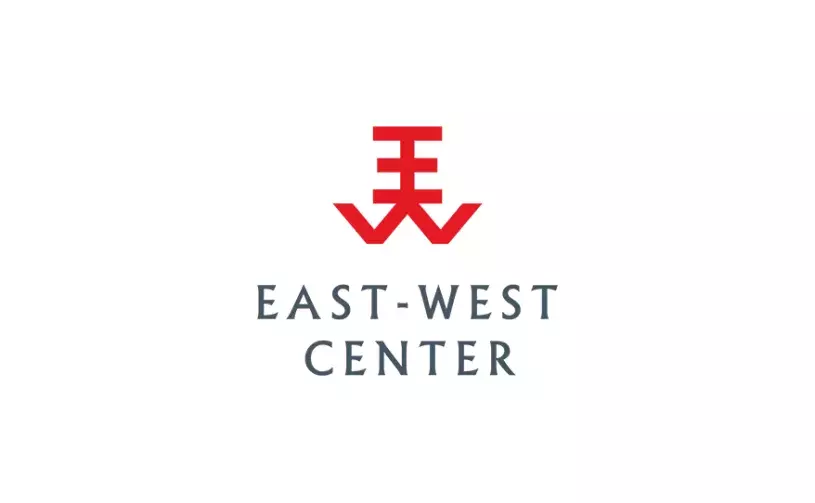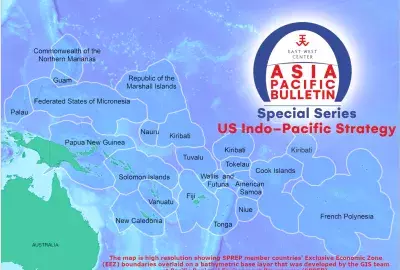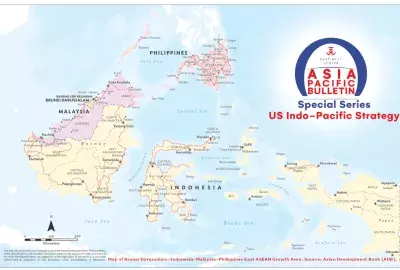Error message

|
Gatra Priyandita, PhD Candidate at Australian National University, explains that "Debates on Chinese labor in Indonesia are not new, though only in recent years has the topic emerged as an important and contentious election issue." |
As China steps up its investments in Indonesia, more Chinese workers are migrating there, creating resentment among the local population. This could become an important and destabilizing issue in the context of Indonesian elections to be held in April 2019. While the Indonesian Ministry of Manpower records only around 25,000 Chinese workers overall in the country, discredited reports circulating online claiming that millions of Chinese workers are flooding into the Indonesian job market have in recent years sparked major public debates about the role of Chinese workers in the country. The most recent debate took place from March to May 2018, when President Joko Widodo (popularly known as Jokowi) issued a presidential regulation simplifying existing procedures for foreigners wanting to work in Indonesia. This regulation was passed in order to help stimulate foreign direct investment. However, Jokowi’s critics fear that it will force local Indonesians to compete with foreign workers for jobs.
Debates on Chinese labor in Indonesia are not new, though only in recent years has the topic emerged as an important and contentious election issue. There are three factors that account for this escalation. First, there remains a general distrust of Chinese intentions in Indonesia. Cold War relations between Indonesia and China were ambivalent, and Mao’s policy of supporting communist movements abroad meant that Indonesian policymakers historically viewed Beijing with strong suspicion. While perceptions of China have significantly improved, there remains a sense of insecurity in Indonesia concerning Chinese ambitions. China today is Indonesia’s biggest trading partner and largest source of foreign direct investment, and there are fears that China may leverage its economic asymmetry to influence Indonesia’s foreign and domestic policies.
Second, there is a general concern over the failure of successive Indonesian governments to tackle the problem of income disparity. Last year, an Oxfam report entitled “Towards a More Equal Indonesia” highlighted the fact that that Indonesia’s four richest people have as much wealth as the poorest 100 million. Inequality, the report noted, has been driven by a combination of “market fundamentalism,” low tax collection, and high concentrations of land ownership. Jokowi had already taken steps to mitigate the problem, such as by expediting the implementation of asset distribution and land certification programs. However, such programs are considered insufficient in the short run. Some civil society organizations are already calling for more drastic measures. For instance, in an interview published by Reuters in May 2017, Bachtiar Nasir, an influential Islamic scholar, criticized the excessive wealth of ethnic Chinese Indonesians and called for affirmative action programs for “native” Indonesians. Caricatures of ethnic Chinese as excessively wealthy and greedy damage ethnic relations in the country. The decision by some Chinese companies to invite Chinese laborers to come with them further exacerbates the situation.
Third, labor issues have become more contentious election topics because of the growing political prominence of labor unions. Due to their ability to hold mass rallies and their strong grassroots reach, labor unions have emerged as powerful sources of political support in recent elections. During labor protests on May 1, Jokowi’s likely rival for the April 2019 elections, Prabowo Subianto, voiced his opposition to Jokowi’s recent regulation on easing the process for foreign workers wanting to work in Indonesia. Prabowo won the support of the Confederation of Indonesian Labor, one of the largest labor unions in Indonesia, which had also supported him when he ran against Jokowi for president in 2014.
While concern over foreign workers has sprung up sporadically in the past few years, labor union officials were more prominent and involved in the recent public debates on the regulation than ever before. This trend suggests that the battle over the rights of foreign workers has become a central policy focus, at least for some labor unions. Considering the alignment of labor unions with next year’s presidential candidates, it is unlikely that the issue of foreign workers will disappear anytime soon.
In May 2018 Chinese Premier Li Keqiang made his first official overseas trip to Jakarta, where he met with Jokowi. Trade and investment were at the top of the agenda, as Indonesia seeks to attract more investments from China for major infrastructure projects. Interestingly, Li also brought up the issue of Chinese laborers and pledged to encourage Chinese companies in Indonesia to employ mostly Indonesian workers. This seems to be the first time that Li has publicly addressed the contentious topic of Chinese laborers in Southeast Asia. This announcement reflects China’s growing understanding of social and political sensitivities in Southeast Asia, including the growing prominence and heated nature of the issue in Indonesia’s political discourse.
The Jokowi administration faces an obvious dilemma in choosing between easing the process for Chinese companies to invest in Indonesia (and to complete existing projects) and protecting the interests of Indonesian laborers who feel threatened by foreign workers. Jokowi has made the realization of ambitious infrastructure projects a top priority. China, with its huge foreign exchange reserves and growing enthusiasm for investing in infrastructure projects overseas, has been an important target of Indonesia’s economic diplomacy.
While continuing to welcome Chinese investment, the Jokowi administration has attempted to respond to the backlash against Chinese workers by floating the idea that the government may re-instate a 2015 policy requiring foreign workers to speak some Indonesian, but this move has not won back support for the president.
In the lead up to the 2019 presidential elections, the Indonesian government is likely to focus more on social welfare policies and backtrack on some of its reformist economic agenda. On the issue of foreign labor, the government will likely implement additional requirements for foreigners wanting to work in Indonesia, such as quotas for foreigners who seek blue collar jobs.
Chinese managers will need to learn to adjust to these likely policy changes. In the coming months, Chinese companies will be closely scrutinized, particularly over the issue of laborers. It is important for Chinese companies to pay closer attention to both the political and social sensitivities of the communities in which their projects are located. Li Keqiang’s call for more Chinese companies to employ local Indonesians hopefully signals an important step.
|
Gatra Priyandita, PhD Candidate at Australian National University, explains that "Debates on Chinese labor in Indonesia are not new, though only in recent years has the topic emerged as an important and contentious election issue." |
As China steps up its investments in Indonesia, more Chinese workers are migrating there, creating resentment among the local population. This could become an important and destabilizing issue in the context of Indonesian elections to be held in April 2019. While the Indonesian Ministry of Manpower records only around 25,000 Chinese workers overall in the country, discredited reports circulating online claiming that millions of Chinese workers are flooding into the Indonesian job market have in recent years sparked major public debates about the role of Chinese workers in the country. The most recent debate took place from March to May 2018, when President Joko Widodo (popularly known as Jokowi) issued a presidential regulation simplifying existing procedures for foreigners wanting to work in Indonesia. This regulation was passed in order to help stimulate foreign direct investment. However, Jokowi’s critics fear that it will force local Indonesians to compete with foreign workers for jobs.
Debates on Chinese labor in Indonesia are not new, though only in recent years has the topic emerged as an important and contentious election issue. There are three factors that account for this escalation. First, there remains a general distrust of Chinese intentions in Indonesia. Cold War relations between Indonesia and China were ambivalent, and Mao’s policy of supporting communist movements abroad meant that Indonesian policymakers historically viewed Beijing with strong suspicion. While perceptions of China have significantly improved, there remains a sense of insecurity in Indonesia concerning Chinese ambitions. China today is Indonesia’s biggest trading partner and largest source of foreign direct investment, and there are fears that China may leverage its economic asymmetry to influence Indonesia’s foreign and domestic policies.
Second, there is a general concern over the failure of successive Indonesian governments to tackle the problem of income disparity. Last year, an Oxfam report entitled “Towards a More Equal Indonesia” highlighted the fact that that Indonesia’s four richest people have as much wealth as the poorest 100 million. Inequality, the report noted, has been driven by a combination of “market fundamentalism,” low tax collection, and high concentrations of land ownership. Jokowi had already taken steps to mitigate the problem, such as by expediting the implementation of asset distribution and land certification programs. However, such programs are considered insufficient in the short run. Some civil society organizations are already calling for more drastic measures. For instance, in an interview published by Reuters in May 2017, Bachtiar Nasir, an influential Islamic scholar, criticized the excessive wealth of ethnic Chinese Indonesians and called for affirmative action programs for “native” Indonesians. Caricatures of ethnic Chinese as excessively wealthy and greedy damage ethnic relations in the country. The decision by some Chinese companies to invite Chinese laborers to come with them further exacerbates the situation.
Third, labor issues have become more contentious election topics because of the growing political prominence of labor unions. Due to their ability to hold mass rallies and their strong grassroots reach, labor unions have emerged as powerful sources of political support in recent elections. During labor protests on May 1, Jokowi’s likely rival for the April 2019 elections, Prabowo Subianto, voiced his opposition to Jokowi’s recent regulation on easing the process for foreign workers wanting to work in Indonesia. Prabowo won the support of the Confederation of Indonesian Labor, one of the largest labor unions in Indonesia, which had also supported him when he ran against Jokowi for president in 2014.
While concern over foreign workers has sprung up sporadically in the past few years, labor union officials were more prominent and involved in the recent public debates on the regulation than ever before. This trend suggests that the battle over the rights of foreign workers has become a central policy focus, at least for some labor unions. Considering the alignment of labor unions with next year’s presidential candidates, it is unlikely that the issue of foreign workers will disappear anytime soon.
In May 2018 Chinese Premier Li Keqiang made his first official overseas trip to Jakarta, where he met with Jokowi. Trade and investment were at the top of the agenda, as Indonesia seeks to attract more investments from China for major infrastructure projects. Interestingly, Li also brought up the issue of Chinese laborers and pledged to encourage Chinese companies in Indonesia to employ mostly Indonesian workers. This seems to be the first time that Li has publicly addressed the contentious topic of Chinese laborers in Southeast Asia. This announcement reflects China’s growing understanding of social and political sensitivities in Southeast Asia, including the growing prominence and heated nature of the issue in Indonesia’s political discourse.
The Jokowi administration faces an obvious dilemma in choosing between easing the process for Chinese companies to invest in Indonesia (and to complete existing projects) and protecting the interests of Indonesian laborers who feel threatened by foreign workers. Jokowi has made the realization of ambitious infrastructure projects a top priority. China, with its huge foreign exchange reserves and growing enthusiasm for investing in infrastructure projects overseas, has been an important target of Indonesia’s economic diplomacy.
While continuing to welcome Chinese investment, the Jokowi administration has attempted to respond to the backlash against Chinese workers by floating the idea that the government may re-instate a 2015 policy requiring foreign workers to speak some Indonesian, but this move has not won back support for the president.
In the lead up to the 2019 presidential elections, the Indonesian government is likely to focus more on social welfare policies and backtrack on some of its reformist economic agenda. On the issue of foreign labor, the government will likely implement additional requirements for foreigners wanting to work in Indonesia, such as quotas for foreigners who seek blue collar jobs.
Chinese managers will need to learn to adjust to these likely policy changes. In the coming months, Chinese companies will be closely scrutinized, particularly over the issue of laborers. It is important for Chinese companies to pay closer attention to both the political and social sensitivities of the communities in which their projects are located. Li Keqiang’s call for more Chinese companies to employ local Indonesians hopefully signals an important step.







